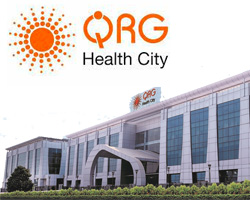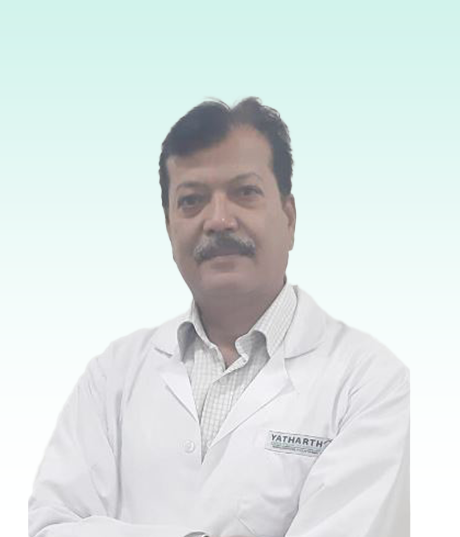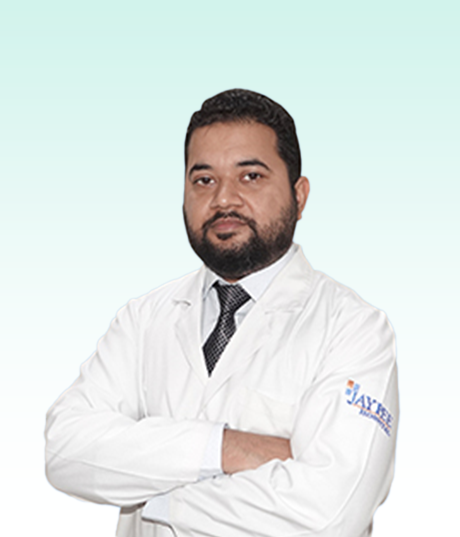Sinus Surgery
Sinus surgery healthcare providers use this surgery to treat chronic sinusitis, remove nasal polyps and treat other conditions that affect your sinuses. Most people have sinus surgery because they have severe sinus problems that medication hasn’t helped. There are several types of sinus surgeries designed to be less invasive with shorter recovery times.

Who Needs Sinus Surgery
Sinus surgery may be recommended for individuals who experience:
Chronic Sinusitis: Persistent inflammation of the sinuses leading to symptoms such as nasal congestion, facial pain, headaches, and thick nasal discharge.
Sinus Polyps: Noncancerous growths in the sinuses that can obstruct airflow and cause recurrent infections.
Deviated Septum: A crooked or deviated septum that hinders proper sinus drainage and contributes to chronic sinus problems.
Sinus Tumors: Rare but potentially serious growths within the sinuses that require surgical removal.
When to See a Specialist
If you have chronic sinus symptoms, recurring sinus infections, or nasal polyps that do not respond to medication, it’s essential to consult an ear, nose, and throat (ENT) specialist. They can evaluate your condition, recommend appropriate treatments, and determine if sinus surgery is necessary.
Procedure
Anesthesia: Sinus surgery is typically performed under general anesthesia to ensure the patient is asleep and pain-free during the procedure.
Endoscopic Approach: In most cases, sinus surgery is minimally invasive and performed using an endoscope, a thin, flexible tube with a camera attached. This allows the surgeon to visualize and access the sinuses without external incisions.
Sinus Examination: The surgeon examines the sinuses to identify and address specific issues such as polyps, inflamed tissue, or obstructions.
Sinus Clearing: Inflamed or obstructed tissue is carefully removed, and any necessary adjustments to the septum are made to improve sinus drainage.
Balloon Sinuplasty (Optional): In some cases, balloon sinuplasty may be performed. This involves inflating a small balloon within the sinus passages to widen them and improve airflow.
Closure: The procedure concludes with the sinuses being left open, allowing for better drainage and improved airflow.
Road To Recovery
Recovery from sinus surgery includes:
Hospital Stay: Most sinus surgeries are performed on an outpatient basis, and patients can typically return home the same day.
Nasal Packing (if required): In some cases, nasal packing may be placed to control bleeding and aid healing. This is typically removed after a few days.
Pain Management: Over-the-counter or prescription pain medications may be necessary initially.
Follow-up Appointments: Regular follow-up visits with the surgeon to monitor healing and assess the surgical outcome.
Risk Management
While sinus surgery is generally safe, it carries potential risks, including:
Infection: Proper post-operative care and antibiotic use help reduce the risk of infection.
Bleeding: Although uncommon, post-operative bleeding can occur and may require medical attention.
Changes in Smell or Taste: Temporary changes in smell or taste are possible but typically resolve as the sinuses heal.
Benefits of Sinus Surgery
The benefits of sinus surgery include:
Improved Sinus Function: Surgery can alleviate chronic sinus symptoms, improve airflow, and promote proper sinus drainage.
Reduced Sinus Infections: With improved drainage and reduced inflammation, the risk of recurrent sinus infections is minimized.
Enhanced Quality of Life: Patients often experience an overall improvement in their quality of life, as they can breathe more easily and enjoy relief from sinus-related discomfort.
Frequently Asked Questions
Is sinus surgery painful?
Patients may experience some discomfort after surgery, which can be managed with pain medications prescribed by the surgeon.
How long does recovery take?
Recovery times vary but may range from a few days to several weeks, depending on the extent of the surgery and individual factors.
Will there be visible scarring after sinus surgery?
Sinus surgery is typically performed endoscopically, resulting in no visible external scarring.
Can sinus surgery cure chronic sinusitis?
While sinus surgery can significantly alleviate symptoms and improve sinus function, it may not be a permanent cure. Long-term management and follow-up care may be necessary.
Are there non-surgical alternatives to sinus surgery?
Yes, non-surgical treatments like medications, saline rinses, and lifestyle changes are often explored before considering sinus surgery. However, surgery may be necessary when these treatments are ineffective.
Treatment Plans
- Trauma & intensive care $59
- Aged Care $29
- Community Services $25
- Diagnosis & Investigation $48
- Medical & Surgical $82
- Mental Health $74
- Rehabitation $24
- Specialised Support Service $19
- Trauma & intensive care $59
- Aged Care $29
- Community Services $25
- Diagnosis & Investigation $48
- Medical & Surgical $82
- Mental Health $74
- Rehabitation $24
- Specialised Support Service $19
Treatians As The Best Choice
Treatians understand that seeking medical treatment abroad can be a daunting experience for patients and their families. That’s why the company offers end-to-end support to its clients, from the initial consultation to post-treatment care. The company provides personalized treatment plans that are tailored to meet the individual needs of each patient, and its team of dedicated professionals is always on hand to provide guidance and support throughout the entire process. Contact us at +91-7982312582, drop your email [email protected]
- Trauma & intensive care
- Aged Care
- Community Services
- Diagnosis & Investigation
- Medical & Surgical
- Mental Health
- Rehabitation
- Specialised Support Service
Service Recipient Says

Oxmox advised her not to do so, because there were thousands of bad Commas, wild Question Marks and devious.
Kolis Muller NY Citizen
Oxmox advised her not to do so, because there were thousands of bad Commas, wild Question Marks and devious.
Kolis Muller NY Citizen



















Oxmox advised her not to do so, because there were thousands of bad Commas, wild Question Marks and devious.
Kolis Muller NY Citizen